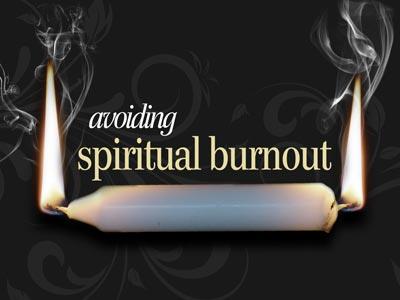-
"Finding Comfort From God While We Comfort Others" Series
Contributed by Rich Anderson on Nov 28, 2017 (message contributor)
Summary: As Christians we can find strength in our weakness. And God promises through His Scriptures that He will remain faithful and comfort us when we are discouraged in times of trial.
A group of friends went deer hunting and paired off in twos for the day. That night one of the hunters returned alone, staggering under an eight-point buck. "Where’s Harry?" he was asked. "Harry had a stroke of some kind. He’s a couple of miles back up the trail." "You left Harry lying there, and you carried the deer back?" "Well," said the hunter, "I figured no one was going to steal Harry."
I wonder how Harry was feeling. I would imagine he felt abandoned, cold and alone. We have felt the same, haven’t we?
“You seem to imagine that I have no ups and downs, but just a level and lofty stretch of spiritual attainment with unbroken joy. By no means! Often times everything in my life appears to be murky.” So wrote the man who was called in his day “The Greatest Preacher in the English speaking world, Dr. John Henry Jowett. He pastored leading churches in the early 20th century, preached to huge congregations and wrote books that were best sellers.
Or, “I am the subject of depressions of spirit so fearful that I hope none of you ever get to such extremes of wretchedness as I go to.” These were words spoken by Charles Spurgeon whose ministry in London made him perhaps the greatest preacher England ever produced.
Discouragement attacks us all doesn’t it? So we are not surprised then when we read that the Apostle Paul was “pressed out of measure” (I call it being out of sorts) and "despaired even of life.” (1st Corinthians 1:8) Great as he was in character and ministry, Paul was human just like the rest of us. Paul could have escaped these burdens except that he had a call from God and a concern to help people.
Paul’s letters to the Corinthian Church are sandwiched between his letter to the Romans and his letter to the Galatians. The specific letters to the church in Corinth really address some very practical issues. But are these two the only letters Paul wrote to them? Evidently there was a third, although it was not inspired by God and therefore not included in our Biblical Canon. Paul references this third, private letter in chapter 5 of 1st Corinthians.
So who were the Corinthians? We have read many passages from these letters over the years and we have discussed the background of the church of Corinth, but it is good to review. As we look closely at the culture and lifestyle of the Corinthians, it may remind you of our society today.
Corinth was one of the foremost Grecian metropolitan cities with a population between six and seven hundred thousand. The capital of the province was Achaia (a-kee-a.) In Acts chapter 18, (written by the Gospel writer Luke) we read that Gallio, (Gall-leo) the Roman proconsul or governor resided there. Because of Corinth’s geographical location it was a very prosperous city, known for its vast commerce and immense wealth. Greek civilization thrived there. The fine arts were cultivated, athletic games and schools of philosophy flourished in this proud city. But it was also known for its open and gross immorality. The Greek worship of Aphrodite, the goddess of love, beauty and sexuality, was deep rooted in the culture of Corinth. Aphrodite was the Greek name for the one whom the Romans worshipped as Venus. So great was the moral corruption, that the phrase “to live like a Corinthian” had become a byword of shame and disgust. When we read chapter 1 of Paul’s letter to the Romans, he gives us some idea of the moral conditions prevailing in Corinth, for he wrote Romans from Corinth. In verse 24 Paul writes of the people of Corinth; “Therefore God also gave them up to uncleanness in the lust of their hearts, to dishonor their bodies among themselves, who exchanged the truth of God for the lie, and worshiped and served the creature rather than the creator.”
And in the verses that follow, he lists specifics such as unrighteousness, wickedness, maliciousness, full of envy, deceit, evil mindedness, backbiters, haters of God, violent, proud, boasters, inventors of evil things, disobedient to parents, untrustworthy, unloving, unforgiving and more if that is even possible. The Corinthian church was not immune to these cultural qualities; these were very much a part of the church. So Paul’s words of the Gospel directed to the people of Corinth were timely and badly needed. How the Gospel reached Corinth we learn from the 18th chapter of Acts. I encourage you to read the account. After spending time in Athens, the Apostle Paul traveled to Corinth and began his work in a very quiet way. He did not enter the city with a blare of trumpets; he was not advertised as a great evangelist; he simply went to work as an unknown craftsman. He was a tentmaker associated with his two friends Aquila and Priscilla, and they opened a business together.

 Sermon Central
Sermon Central



